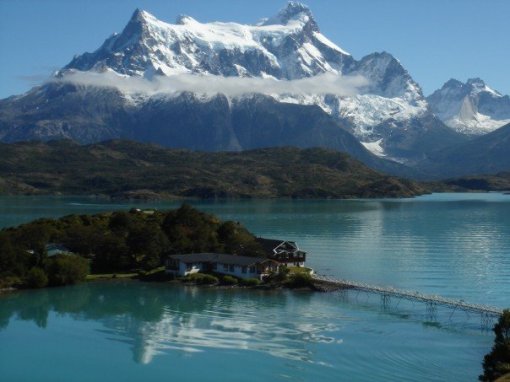Purchasing your own ecosystem seems to be the latest trend to hit South America. From Chilean billionaires to Goldman Sachs…it would seem big businesses and entrepreneurs want a slice of South America’s environmental heritage. It’s all in the name of conservation (so they say).Millions of hectares worldwide are being bought by business leaders and placed in private charities, conservation trusts or handed over to governments as a bid to conserve and protect fragile environments. Has the corporate world suddenly woken up to the tired rhetoric of social and environmental responsibility? Or is this just another PR stunt to soothe their battered reputations during a worsening global financial crisis?
So here are some of the facts…
Sebastian Pinera is one of the richest men in Chile and is more attuned to managing real estate and aviation companies that the environment. Pinera bought Parque Tantauco on Chiloe Island, near Patagonia two years ago. He’s the proud owner of 120,000 hectares of inland virgin forests and a delicate ecosystem which supports offshore blue whales. He says his sole aim is to protect the area. Whilst Goldman Sachs acquired 270,000 hectares of alpine forest in Southern Chile and Argentina back in 2003. Laurence Linden, the then bank director, said: “Goldman Sachs is an investment bank, so we know what to do with shopping malls and apartment complexes. But an ecosystem down in Tierra del Fuego? We had to get out an atlas.” But even they recognized the environmental value of this land. The land is one of the last remaining pieces of a fragile alpine and coastal beech in South America and home to the guanaco, a llama-like animal and native lenga tree which takes 200 years to grow just 20 metres. Industrial forestry projects, overgrazing, oil spills and over-fishing have already taken their toll on this fragile eco-system. The bank have also vowed to protect the fragile eco-system.
First let me set the scene. Patagonia, is a region straddling Southern Chile and Argentina, and the most southern tip of the world before you hit Antartica. It has an abundance of rare flora and fauna, a population of endemic species from Magellenic Penguins to the elusive orca, and is framed by ‘crystal green lakes, volcanoes, untamed mountain ranges and magnificent glaciers that follow the Andes coastline’. Despite this obvious environmental value, only 5% of the area is protected as a national park and environmental threats are rising with increasing numbers of tourists and mineral miners flocking to the region. So basically it’s all about stewardship – should we (I) really be so cynical about who is in control of preserving this landscape? Surely the most important thing is that the West (American big business) is interested in conserving it and who really cares what their real motives might be.
Pinera, now an eco baron and a billionaire businessmen, has apparently been won over by the deep ecology movement. A philosophy that calls for a radical re-evaluation of man’s relationship with the planet. This theory stipulates that ‘we cannot go on with industrialism’s “business as usual.” Without changes in basic values and practices, we will destroy the diversity and beauty of the world, and its ability to support diverse human cultures. This radical environmental movement advocates redesigning our whole way of life to focus on values and methods that preserve the ecological and cultural diversity of natural systems. Basically putting nature first. The movement has focused much of its work in Patagonia, picking it out as an area at risk from the monoculture of the industrial and modernist development model. I find it ironic and a little bit ridiculous that this billionaire has treated himself to an ecosystem in the name of deep ecology. Has he actually read any of their literature? When he eventually gets round to it…he might finally realise that his whole ‘corporate’ way of life conflicts with the basic environmentalist discourse that emerged after the publication of Rachel Carson’s highly influential book Silent Spring.
I am not saying that it is a bad thing that the corporate world and America’s business men are taking an interest in environmentalism. It should be celebrated that these kind of issues are being put on the international agenda. What I am saying is that it should be for the right reasons. My worry is that some may be buying land to improve their public image and as a kind of status symbol, whilst others may have considerably darker motives. Patagonia is resource rich as highlighted by recent mineral mining ventures and proposed hydro-electric dams. Chile and Argentina are newly emerging economies on the global stage. The West want their slice of all these things, not just a pretty little ecosystem.
One last fact…
Prices are soaring in Patagonia. When American conservationists bought 70,000 hectares several years ago, they paid about $10 million. Today 9000 hectares will set you back $12 million.
Is this all about making money and exerting control?

